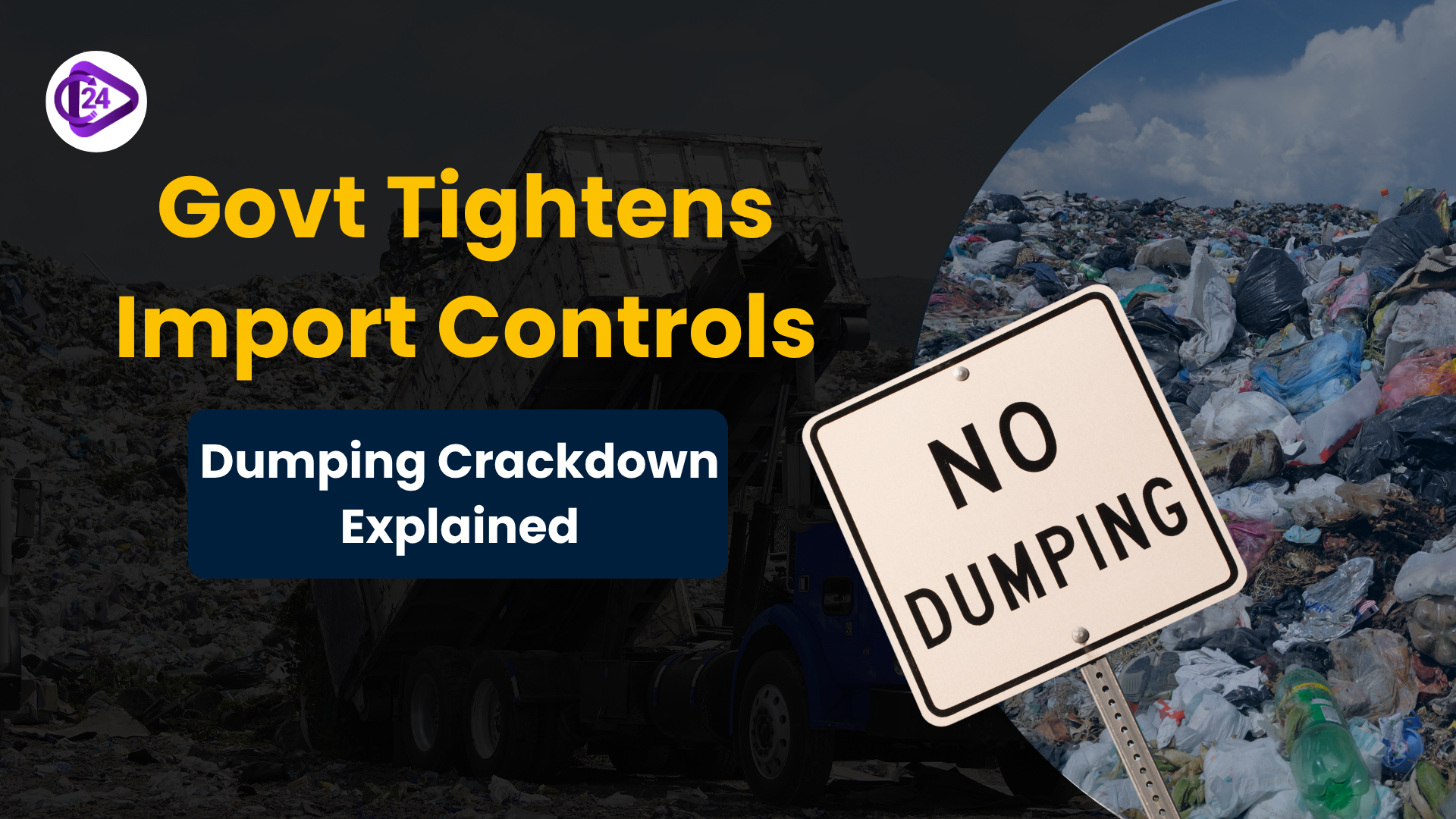
On day one of the Monsoon Session 2025, Parliament enacted the Bills of Lading, 2025, to replace the Indian Bills of Lading Act, 1856 that was 169 years old. The Bill presented by Union Minister Sarbananda Sonowal seeks to modernise India's trade documentation system in the maritime sector. It makes law simpler, complies with international best practice and fosters Ease of Doing Business (EoDB). It is one of the joint efforts of India to get rid of colonial-era laws. The bill has since waited to get Presidential assent to be law.
Context
-
The Indian maritime industry plays a crucial role in global trade however, the industry was regulated by an old-fashioned colonial history act which was a law dating back to 1856.
-
Coming to this realization, the Government of India introduced the Bills of Lading, 2025 which was meant to coincide with international shipping customs, greater legal certainty, and also with faster dispute settlement so that India could be more competitive in her trading activities worldwide.
What are the Bills of Lading, 2025?
Key Features of the Bill
|
Provision |
Description |
|
Replaces |
Indian Bills of Lading Act, 1856 (169 years old) |
|
Tabled by |
Union Minister of Ports, Shipping & Waterways, Sarbananda Sonowal |
|
Passed by |
Lok Sabha (March 2025), Rajya Sabha (21 July 2025) |
|
Status |
Passed by Parliament; awaits Presidential assent |
|
Objective |
Modernize shipping documentation, reduce disputes, boost EoDB |
|
Legal Alignment |
Aligns with international maritime documentation standards |
|
Language |
Simplified, business-friendly legal terms |
|
Enabling Clause |
Allows Central Govt. to issue implementation directions |
|
Repeal and Saving Clause |
Preserves legal continuity for actions under the old Act |
Why was there a need to reform?
-
Colonial legacy: The Indian Bills of Lading Act, 1856 was not keeping in pace with the trade and was too old-fashioned.
-
Legal Ambiguity Old provisions were complex hence they brought about legal uncertainties and delays.
-
Global Integration: India had to seek a contemporary framework that was compatible with the international laws of maritime trade.
-
Ease of Doing Business: A streamlined legal system will bring in easier and dispute-free business.
Major Modern Reforms
-
Uniformity of Legal Provisions to correspond with the global shipping practices
-
Transparency of ship owners, consignees rights and duty
-
E-Bill of Lading systems language-friendly to the future digitization era
-
Promotes the development of trade by guaranteeing a quick development of cargo and documentation
Symbolism: Free yourself of the Colonial Means
-
The enactment of this Bill forms a bigger national movement to:
-
Substitute the outdated colonial laws with modern Indian structures
-
Realise the Dream of Viksit Bharat @2047
-
Assert India maritime economic sovereignty
-
Formulate law-making institutions in line with the Constitutional spirit of India
Conclusion
The Bills of Lading, 2025, is one of the first milestones of the cluster of changes in the maritime legal system of India. It does not only make the trade documentation much easier but also indicates the desire of India to be a global trading center. This shows that India passed an archaic garbled colonial law with a modern law to enforce its stand on reforms, self-reliance and international leadership in international trade.



 Vice-President Jagdeep Dhankhar Resigns Citing Health Reasons
Vice-President Jagdeep Dhankhar Resigns Citing Health Reasons Tamil Nadu Police to Launch e-Sakshya App for Digital Evidence Collection
Tamil Nadu Police to Launch e-Sakshya App for Digital Evidence Collection Indian Army’s AI Roadmap by 2026-27: From Drone Swarms to Smart War Rooms
Indian Army’s AI Roadmap by 2026-27: From Drone Swarms to Smart War Rooms Fauja Singh, World’s Oldest Marathoner, Cremated with State Honours
Fauja Singh, World’s Oldest Marathoner, Cremated with State Honours INS Nistar Commissioned: India’s First Indigenous Diving Support Vessel Joins Navy
INS Nistar Commissioned: India’s First Indigenous Diving Support Vessel Joins Navy Govt. Cracks Down on Dumping and Import Surges: Commerce Ministry Tightens Controls
Govt. Cracks Down on Dumping and Import Surges: Commerce Ministry Tightens Controls PM Dhan-Dhaanya Krishi Yojana (PMDDKY): Government Merges 36 Schemes to Launch Flagship Agri-Plan
PM Dhan-Dhaanya Krishi Yojana (PMDDKY): Government Merges 36 Schemes to Launch Flagship Agri-Plan 75th Pradhan Mantri Divyasha Kendra to be Inaugurated in Badaun, Uttar Pradesh
75th Pradhan Mantri Divyasha Kendra to be Inaugurated in Badaun, Uttar Pradesh India’s Renewable Rise: 50% Non-Fossil Capacity Achieved Ahead of 2030 Target
India’s Renewable Rise: 50% Non-Fossil Capacity Achieved Ahead of 2030 Target






